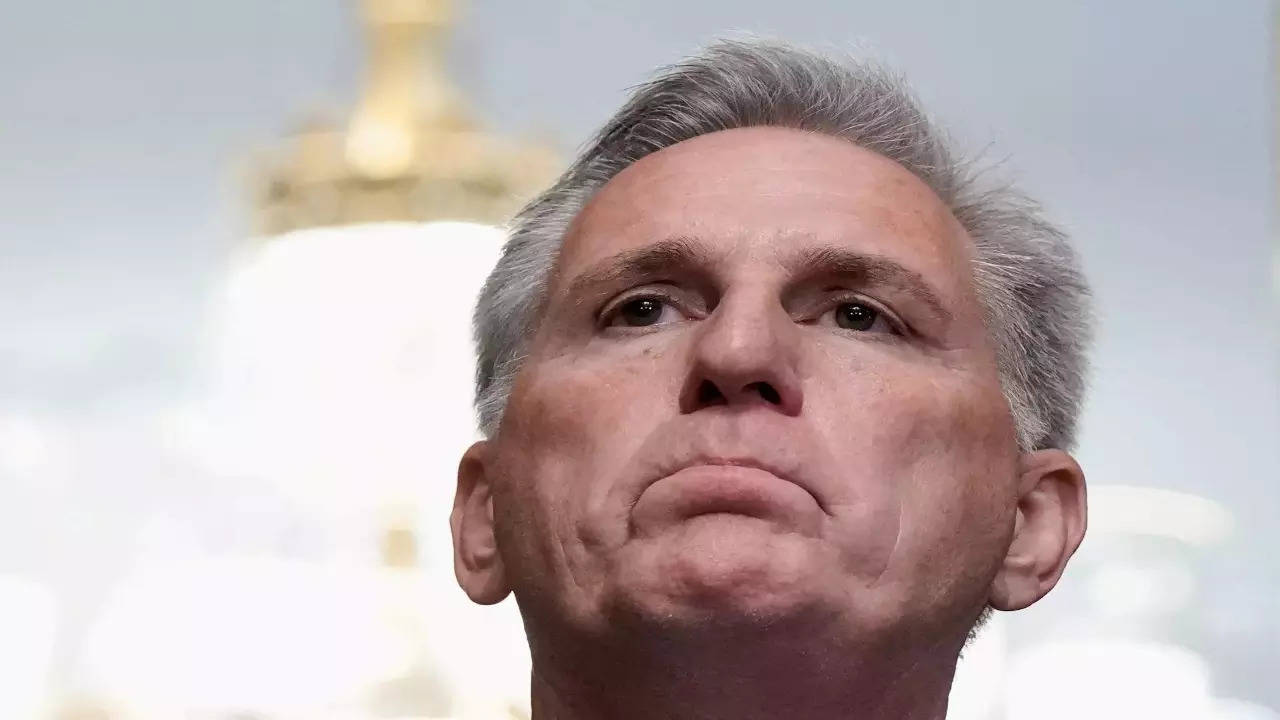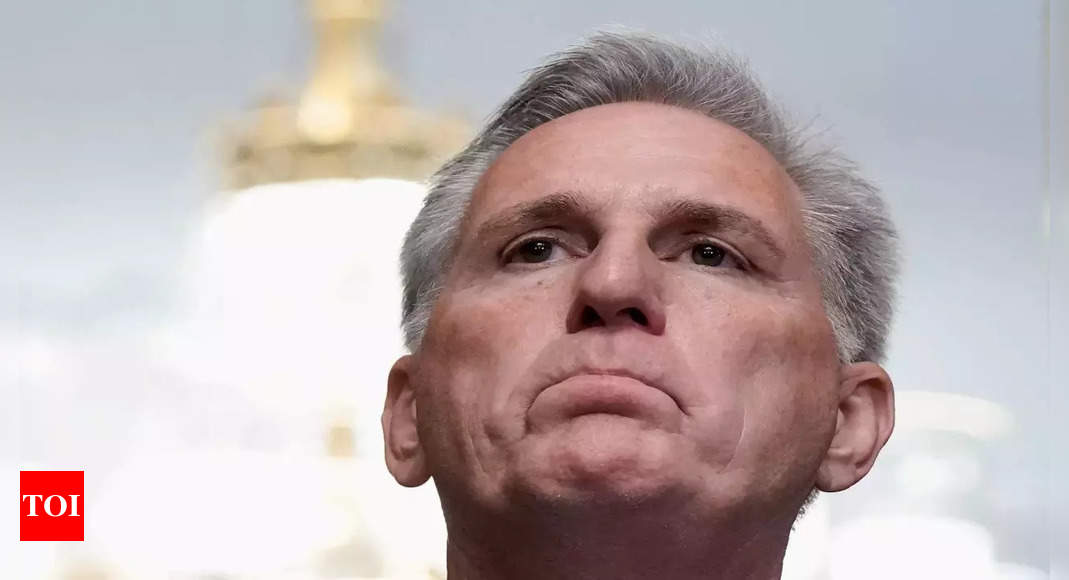
NEW DELHI: Hardline Republican Representative Matt Gaetz has called for a vote to remove Kevin McCarthy, the top Republican in the House of Representatives, from his role as speaker.
According to a report in AP, Gaetz’s move follows the passage of a stopgap funding bill that received more support from Democrats than Republicans, highlighting a growing rift within the GOP.
The House of Representatives,with Republican majority, approved a 45-day stopgap measure with a vote of 335-91 just hours before federal agency funding was set to expire.
This bill, aimed at averting a government shutdown, garnered substantial bipartisan support. Subsequently, the Democratic-led Senate also approved the same bill with bipartisan backing before sending it to President Joe Biden for his signature, AP reported.
Representative Matt Gaetz, a staunch critic within the Republican Party, announced his intention to file a “motion to vacate,” which would initiate a vote to remove McCarthy as speaker.
According to the report, Gaetz voiced his determination in a statement, saying, “If at this time next week Kevin McCarthy is still speaker of the House, it will be because Democrats bailed him out.”
McCarthy faced a challenging path to his speakership earlier this year, enduring 15 rounds of voting in January before securing the position.
The recent passage of a bipartisan stopgap measure intensified conservative Republicans’ criticism of McCarthy. They argued that it amounted to a victory for the perceived “Uniparty” establishment in Washington. Representative Andy Biggs, a leading hardliner, questioned McCarthy’s suitability as speaker on the social media platform X (formerly known as Twitter).
Kevin McCarthy’s decision to bring a bipartisan measure to the floor, despite the potential threat to his leadership, signaled a strategic choice.
He was aware that hardliners might seek his removal under various circumstances. McCarthy underscored his commitment to stand up for the American public, even if it entailed risking his position.
The failure of a Republican stopgap bill, blocked by 21 hardliners, ultimately opened the door to the bipartisan measure that received support from 209 House Democrats and 126 Republicans. Notably, 90 Republicans opposed the stopgap.
According to a report in AP, Gaetz’s move follows the passage of a stopgap funding bill that received more support from Democrats than Republicans, highlighting a growing rift within the GOP.
The House of Representatives,with Republican majority, approved a 45-day stopgap measure with a vote of 335-91 just hours before federal agency funding was set to expire.
This bill, aimed at averting a government shutdown, garnered substantial bipartisan support. Subsequently, the Democratic-led Senate also approved the same bill with bipartisan backing before sending it to President Joe Biden for his signature, AP reported.
Representative Matt Gaetz, a staunch critic within the Republican Party, announced his intention to file a “motion to vacate,” which would initiate a vote to remove McCarthy as speaker.
According to the report, Gaetz voiced his determination in a statement, saying, “If at this time next week Kevin McCarthy is still speaker of the House, it will be because Democrats bailed him out.”
McCarthy faced a challenging path to his speakership earlier this year, enduring 15 rounds of voting in January before securing the position.
The recent passage of a bipartisan stopgap measure intensified conservative Republicans’ criticism of McCarthy. They argued that it amounted to a victory for the perceived “Uniparty” establishment in Washington. Representative Andy Biggs, a leading hardliner, questioned McCarthy’s suitability as speaker on the social media platform X (formerly known as Twitter).
Kevin McCarthy’s decision to bring a bipartisan measure to the floor, despite the potential threat to his leadership, signaled a strategic choice.
He was aware that hardliners might seek his removal under various circumstances. McCarthy underscored his commitment to stand up for the American public, even if it entailed risking his position.
The failure of a Republican stopgap bill, blocked by 21 hardliners, ultimately opened the door to the bipartisan measure that received support from 209 House Democrats and 126 Republicans. Notably, 90 Republicans opposed the stopgap.
Source link

